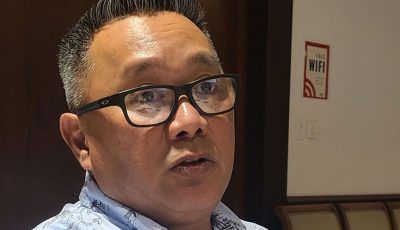HANMI: Hotel occupancy tax also helps the CNMI economy
Aside from the current tourism and economic boom, the underlying lifeblood of the CNMI economy is actually taxes.
Without taxes, any nation, country, and government cannot deliver services meant for the general welfare and protection of its citizens.
One of those taxes that the CNMI government greatly benefits from is the hotel occupancy tax. Hotels are required to charge customers a 15 percent tax on top of the room rate.
Members of the Hotel Association of the Northern Mariana Islands posted a record-breaking hotel occupancy in August 2018, reporting a 97.35 percent average occupancy rate among its 11 member-hotels. This is a 4-percent increase compared to August 2016 and breaks the August 2013 record of 94.01 percent average occupancy.
That high occupancy rate resulted in high hotel occupancy tax collection in the same month—higher than what the Marianas Visitors Authority had projected for August. Payment and collection of hotel occupancy tax is critical as 80 percent of it goes to the MVA.
HANMI chair Gloria Cavanagh said the tax increase was not because of more contributors but because of higher room rates.
“The increase came from those that are already paying hotel occupancy tax. The collection was because of higher room rates and it does not mean it came from new compliance from the guesthouses and bed-and-breakfasts because a lot of them are still in hiding,” she said.
“The reported 63 registered guest houses and B&Bs have nothing on the unregistered 500 more B&Bs you will find in online bookings such as AirBnB,” she added.
Cavanagh noted the “price wars” that are going on with the different airlines that service the same cities from China to Saipan can greatly affect the hotel industry in the CNMI.
“What would happen is you have all these airlines that are competing that have low prices, so they may be sending them to places that might not be paying hotel occupancy tax. Once HANMI’s reservations and occupancy goes down and the guesthouses and B&B group goes up, taxes are going to go down because, remember, there is only about 63 rooms that are registered and legitimate out of 500 posted in AirB&B.”
“Non-availability of rooms in hotels does not give a reason for unregistered guesthouses and B&Bs to open and operate illegally and that doesn’t give a reason as well to not enforce tax laws… I am just saying, give them time to comply and don’t close them down,” she added.
Finance Secretary Larrisa Larson confirmed that the increase in the hotel occupancy tax is a result of several factors.
“Visitor arrivals continue to be strong and as a result the taxes paid on the hotel rooms at our hotels is high. We also have seen increased compliance with our tax laws by our hotels in the CNMI,” she said.
In addition, the Department of Finance Division of Revenue and Taxation has been addressing the problem of unregistered guesthouses and B&Bs through audits and enforcement efforts on non-compliant hotels, bed and breakfasts, and other related establishments. “[Through this], we have seen an improvement in the hotel occupancy tax reporting as well as in other tax categories,” she added.
Larson said anytime that you enforce and encourage compliance you will see an increase in taxes.
“The efforts of the Division of Revenue and Taxation will not stop.
“There are plans for additional enforcement operations throughout the CNMI in addition to what is already occurring. As these operations are ongoing, we cannot disclose all of our plans at this time, but rest assured, we will not stop until full compliance occurs,” she added.
Larson said the laws are very clear regarding the taxes a business is required to pay, whether it be a hotel, a B&B, or any other type of business.
“The DOF Division of Revenue and Taxation has always been willing to work with our taxpayers to understand the laws and work toward full compliance. Should a business willfully decide to evade our tax laws, we will enforce our laws and regulations on that business.”
“If members of the public have any concerns regarding any businesses that are operating outside of the scope of the law, we encourage them to call us at 664-1100 and report these businesses to us so that we can investigate these companies and bring them into compliance,” she added.



























